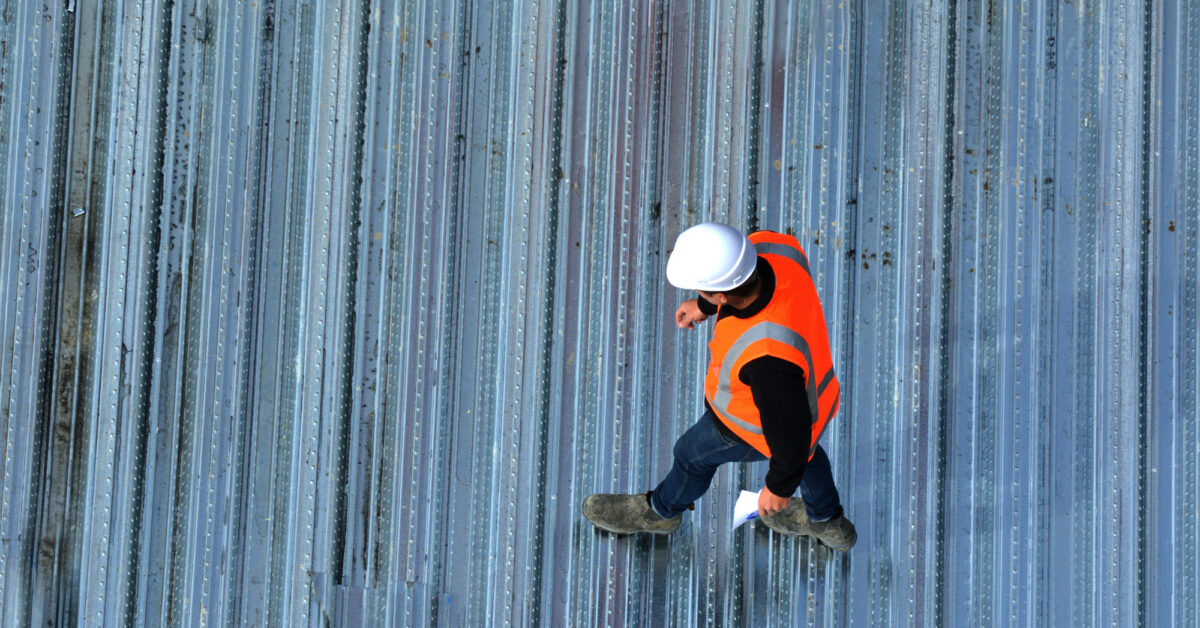So, you opened a brick-and-mortar business. Odds are good that you probably spend most of your time worrying about things like inventory, the customer experience, and where digital marketing strategies fit into your business. You probably don’t spend much time worrying about your roof.
At least, you don’t until it starts leaking, sagging, or a storm blows through and does some damage. If that happens, your entire world revolves around that roof until you get it fixed or replaced. Of course, there are several common commercial roofing materials to choose from.
Not sure which material will suit your needs best? Keep reading for our quick guide.
Contents
Built-Up Roofing
Built-up roofing or BUR is one of the common roofing materials used for flat-roof commercial buildings. BUR consists of layers of tar and asphalt. It’s relatively durable, cost-efficient, and waterproof.
This type of roofing can last as long as 20 years.
Metal
Another widely favored option for commercial properties is metal commercial roofing, known for its exceptional durability, fire resistance, and long lifespan. This roofing type can be further enhanced with specialized coatings that boost waterproofing, offer UV protection, and help prevent rust, making it well-suited for a variety of climates.
Cost is variable depending on your choice of metal and design. With proper maintenance, a metal roof can last 40 years or more.
Single-Ply Membrane
Single-ply membrane options are some of the most common flat roofing materials. Single-ply also covers a variety of products including EPDM, TPO, and PVC.
EPDM is generally cheaper and offers good durability against the elements and UV. It can prove weak against punctures.
TPO and PVC cost a bit more but offer you puncture resistance in addition to fire resistance, weatherproofing, and UV.
Single-ply membrane roofing can last 15 to 30 years, depending on which material you pick.
Shingles
While many commercial buildings employ low-slope roofs, not all of them do. For the steep-slope roof buildings, you often see the same kinds of shingles you find on homes.
Shingles provide solid weatherproofing, UV protection, and offer decent fire resistance. They can also prove an economical option, although heavier architectural shingles will cost more to purchase.
A regular shingle roof can last 15 or even 20 years, while architectural shingles will often last up to 30 years.
Installation
Commercial roof installation is not a DIY project. If underlying structural problems exist, you’ll likely lack the experience to recognize them. You’ll want the services of a professional commercial roofer to provide a quote and handle the installation.
Commercial Roofing Materials and Your Business
For many business owners, simply replacing the roof with the same kind of roof proves simpler than choosing from all of the available commercial roofing materials. Simpler doesn’t always mean better.
At the very least, it’s advisable to consult with a commercial roofer in Greenville, SC, or in your local area to discuss alternative material options that may better suit your business needs. If one of those sounds good, you can ask for a second quote about replacing the current roof with a different roofing material.
Looking for more tips or ideas about keeping your business up and running smoothly. Check out the posts over in our Business & Finance section.

